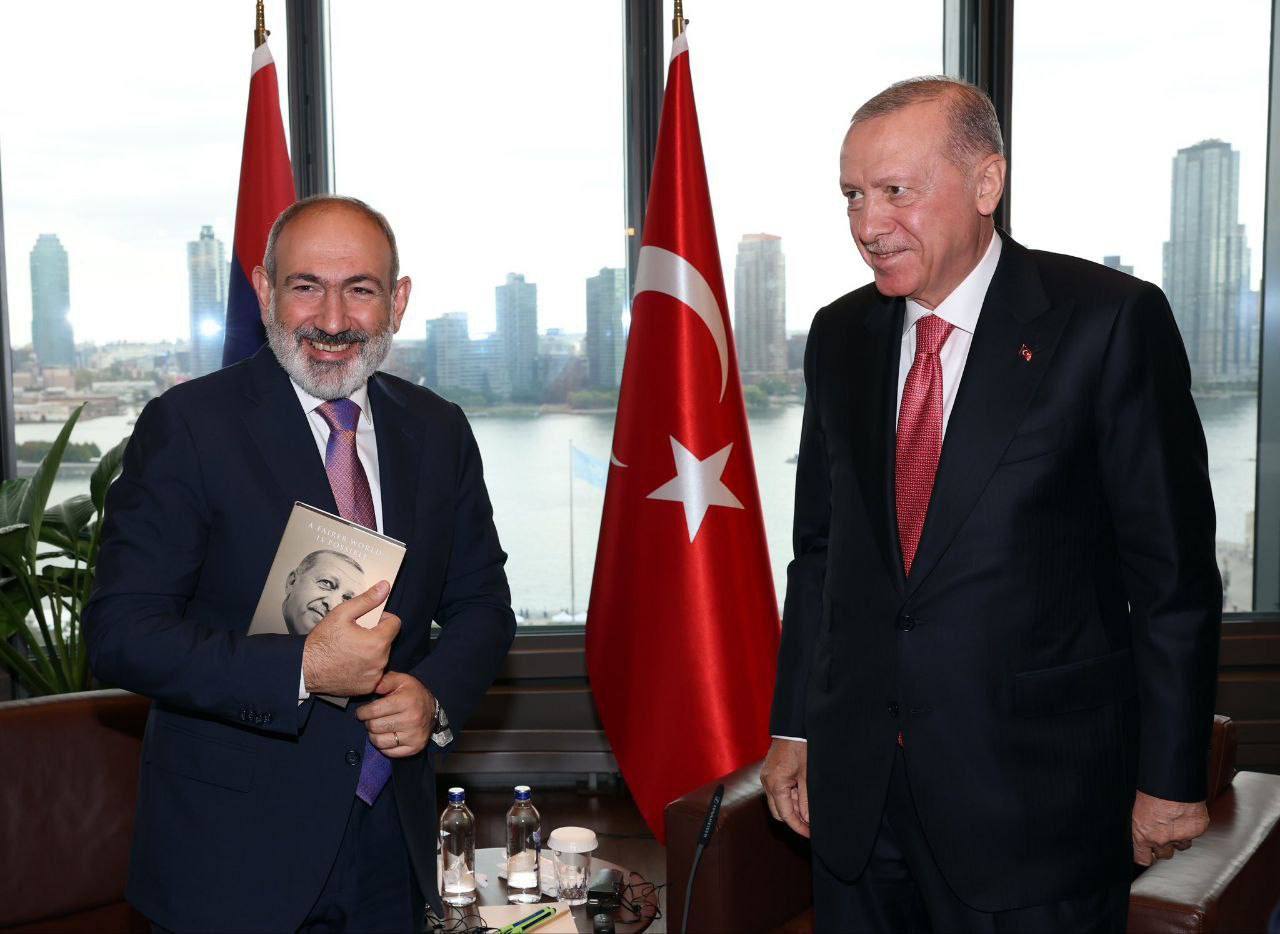Armenian Prime Minister Nikol Pashinyan will travel to Ankara, Turkey on June 20, at the invitation of Turkish President Recep Tayyip Erdogan. This was confirmed by Armenian Parliament Speaker Alen Simonyan, who described it as “historic, because it is the first time that the head of Armenia will make a visit of such a level.”
The visit comes as Armenia navigates rising regional tensions and trade disruptions triggered by the ongoing Iran-Israel conflict. It is being closely watched as a potentially pivotal moment in Armenia-Turkey relations.
The trip follows a June 16 meeting in Ankara between Armenian Deputy Foreign Minister Vahan Kostanyan and his Turkish counterpart Berris Ekinci, during which the two sides exchanged views on regional and bilateral issues. This was reportedly in preparation for Pashinyan’s trip. Deputy Parliament Speaker Ruben Rubinyan — Armenia’s special envoy for normalization talks with Turkey — confirmed that the meeting is part of the broader normalization process and noted that dialogue continues at multiple levels, including foreign ministries, senior officials, and direct communication between leaders. He added that no date has yet been set for the next envoy-level meeting.
While Pashinyan and Erdogan have previously met — including at Erdogan’s 2023 inauguration and at the UN General Assembly in 2024 — this marks the first official bilateral visit of its kind. According to preliminary reports, the agenda will include a possible roadmap toward formal diplomatic recognition and steps to reopen the Armenia-Turkey land border, closed by Ankara in 1993 in protest of Armenia’s military victories in the First Artsakh (Nagorno-Karabakh) War.
Simonyan emphasized that the visit is part of Yerevan’s “meaningful steps” to reduce the risk of renewed conflict with Azerbaijan. That risk, he said, remains “minimal” — but the government is working to eliminate it entirely.
These concerns have grown amid the outbreak of hostilities between Iran and Israel, which some Armenian officials and analysts warn could embolden Azerbaijan to exploit the instability and revive demands for the so-called “Zangezur corridor.”
That corridor — a geopolitical land grab backed by both Baku and Ankara — would cut through Armenia’s Syunik province to connect mainland Azerbaijan with its Nakhichevan exclave. Critically, it would sever Armenia’s strategic border with Iran. Tehran has repeatedly warned that such a move would violate its red lines. Erdogan reaffirmed his backing for the corridor during a recent visit to Azerbaijan, fueling concern that Turkey is using normalization talks as a cover for regional pressure on Yerevan.
Pashinyan and Erdogan last spoke by phone on June 5, discussing bilateral ties and agreeing to keep communication channels open. Yet despite these gestures, Turkey continues to act in full alignment with Azerbaijan’s aggressive regional posture.
Earlier this year, Pashinyan drew fierce backlash from Armenian historians, opposition leaders, and diaspora communities after suggesting that Armenians should “understand what happened” in 1915 and questioning the value of pursuing additional genocide recognition resolutions. Many accused him of softening Armenia’s historical stance to placate Turkey, undermining long-standing national consensus and diplomatic achievements.
Although Armenia and Turkey do not have formal diplomatic relations, talks have intensified since 2022 when both sides appointed special envoys and agreed in principle to reopen the border for third-country nationals and diplomats. However, nearly three years later, tangible progress remains elusive.
Armenia has taken concrete steps, including renovating its border checkpoint in the village of Margara. Though the border remains officially closed, the checkpoint has been used twice: once in February 2023 to deliver humanitarian aid to Turkey following a devastating earthquake, and again in March 2025 to send aid to Syria via Turkish territory.
The June 20 meeting is expected to carry more diplomatic weight than previous encounters. In addition to normalization, it is likely to address regional stability, the Armenia-Azerbaijan peace process, and ongoing efforts on border delimitation and demarcation — all increasingly urgent in today’s shifting geopolitical climate.
Simonyan said the Prime Minister’s Office will provide further details on the visit, but reiterated that “all regional issues will be discussed.” He concluded: “We must work to eliminate the risk of war entirely, and the Armenian government is taking concrete steps to that end. I believe the prime minister’s upcoming visit to Turkey is one such step.”


